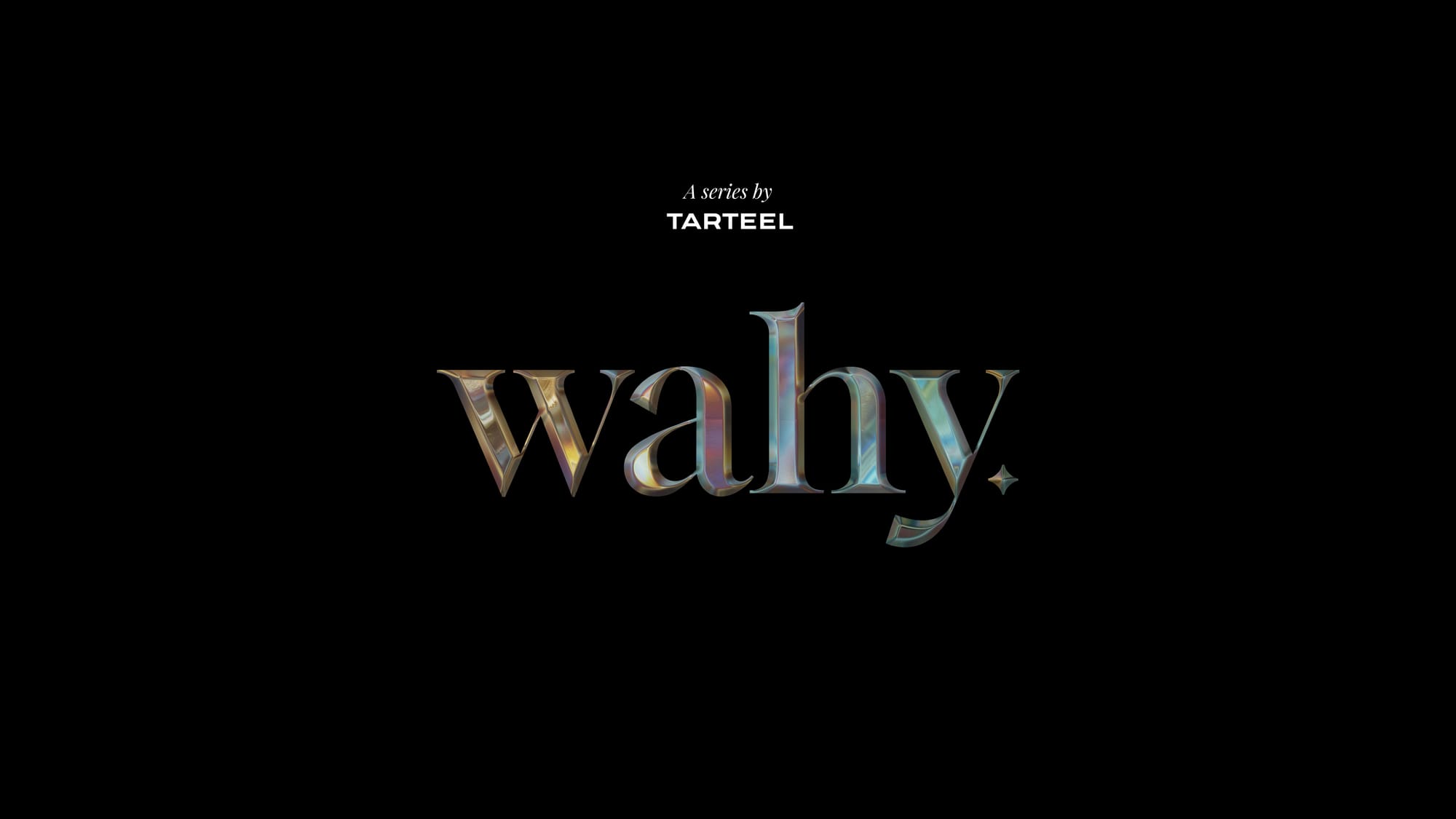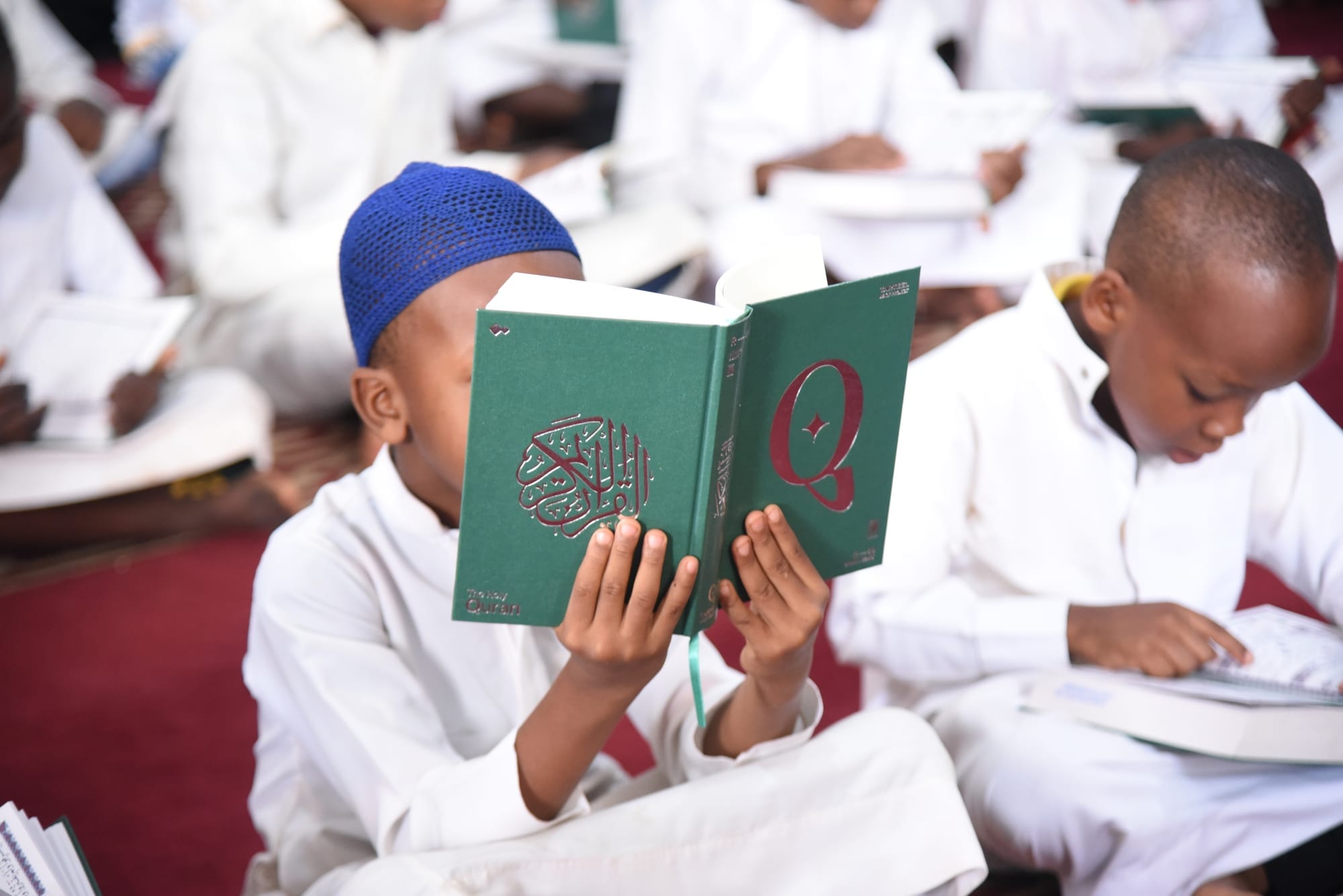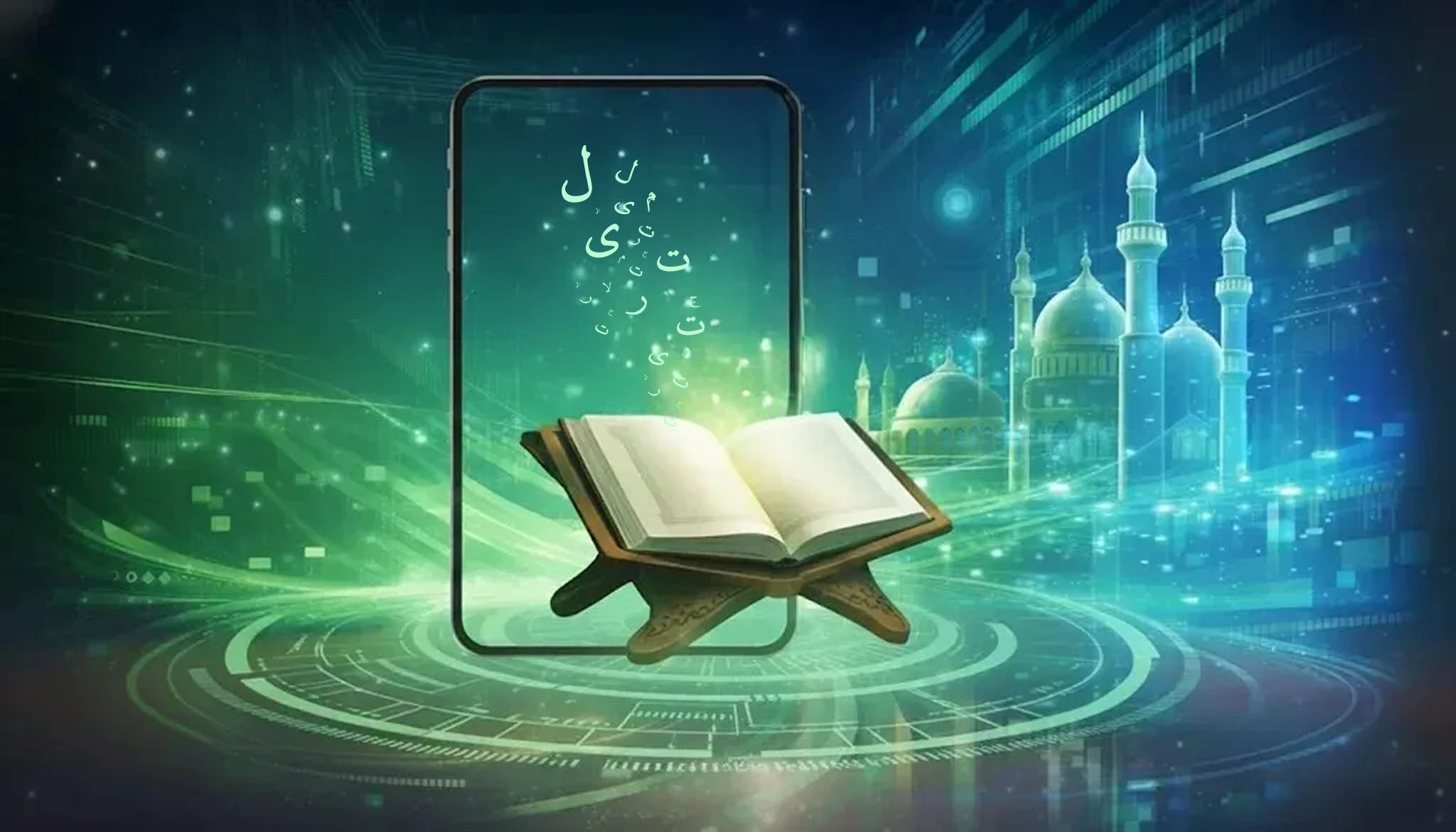The Quran was revealed to our beloved Prophet Muhammad PBUH over 1400 years ago and is the primary source of all guidance for Muslims because it contains the words of Allah SWT. The miracle of the Quran is to be found in its revelation as well as its language, style, and timeless guidance. It is not only revered for its message but also for the way that it has been passed on over time, the oral tradition of the Quran playing a crucial role in its preservation.

Revelation and Sharing
The revelation of the Quran began in 610 CE when the angel Jibreel AS appeared to the Prophet PBUH while he was in the cave of Mount Hira and revealed the first verses of the Quran, instructing to him to recite:
ٱقْرَأْ بِٱسْمِ رَبِّكَ ٱلَّذِى خَلَقَ ١ خَلَقَ ٱلْإِنسَـٰنَ مِنْ عَلَقٍ ٢ ٱقْرَأْ وَرَبُّكَ ٱلْأَكْرَمُ ٣
Read, ˹O Prophet,˺ in the Name of your Lord Who created humans from a clinging clot. Read! And your Lord is the Most Generous… (Surah Al-’Alaq, 1-3)
The Prophet PBUH was illiterate but recited the words of Allah with ease. Over the course of the next 23 years, the Quran was revealed to him in portions, the verses often being responses to events or challenges being faced by Muslims at the time.
During the Prophet’s PBUH time, the Quran was recited in various gatherings, including congregational prayers, personal devotions and during public sermons. It was often recited to the companions who also memorized it and continued to recite it to others, thus beginning a pattern that would gradually see the entire Quran as we know it today, come together. This practice of widespread recitation and memorization of the Quran continued after the Prophet’s PBUH death.
The oral tradition of the Quran was so strong that it continued to be the primary method of transmitting the Quran for several centuries. In the absence of a standardized script at the time, the recitation and memorization were passed down through generations of families and teachers and many Muslims memorized the entire Quran, an incredible achievement that we still strive for today.
Reciting Out Loud
Given that oral preservation played such a key role in learning and sharing the Quran, reciting out loud has great importance as well as benefits, both spiritual and practical:
- Improved pronunciation: When you recite the Quran out loud, you can better focus on the pronunciation of the Arabic words – this can improve your recitation skills and help you avoid common mistakes.
- Enhanced concentration: Reciting out loud can also help you focus better on the verses, making it easier for you to remember and understand them.
- Emotional power: You’re able to connect with the message and words of Allah more deeply as it evokes powerful emotions, leading to a greater sense of spirituality and closeness with Allah SWT.
- Community connection: When reciting in a group setting, it can create a sense of unity and community – this can be especially beneficial during congregational prayers and other religious gatherings.

The Intricacies of Recitation
Listening to recitation of the Quran is often a beautiful and moving experience, and one that inspires many to begin their own memorization journey. The recitations that we hear have undergone plenty of revision and work as it’s not only a matter of memorizing verses but also reciting them with the proper rules.
Tajweed refers to the set of rules and guidelines for the proper pronunciation and recitation of the Quran. It involves learning the correct pronunciation of each Arabic letter as well the rules for elongation, pausing and stopping in recitation. The purpose is to ensure that the Quran is recited correctly in the same way that it was revealed the Prophet PBUH. Tajweed is important for several reasons, the main one being that it helps preserve the original text of the Quran by ensuring that it is recited correctly. It also enhances the beauty and melodic tone of the recitation, moving listeners, particularly in communal settings. Finally, it also helps in understanding the meaning of the verses as the correct pronunciation can affect the meaning of words and phrases in Arabic. Learning Tajweed is considered to be an essential aspect of Quranic education and it is picked up by both Arabic and non-Arabic speakers.
Tashkeel, also known as harakat, are diacritical marks used in Arabic script to indicate the short vowels and other phonetic features that are not represented by the letters themselves. It includes marks such as a fat’ha, kasra and dhamma, which indicate the short vowels a, i, and u respectively as well as marks that indicate long vowels, shadda for doubling a letter, sukoon for indicating the absence of a vowel sound, and others. Tashkeel, much like Tajweed is important for the pronunciation and understanding of the Quran as it’s crucial to the meaning of the text. Without it, it can be difficult to differentiate between words that have similar spellings but vary in meaning, leading to confusion and potential misinterpretation.

Tarteel is a term that refers to the measured, melodious tone and rhythm of the Quran, often characterized by a slow and deliberate pace. Tarteel is considered a beautiful and important way of reciting the Quran and involves carefully pronouncing each word and vowel with proper Tajweed rules and following a certain melody and intonation that is specific to each verse. This helps to enhance the meaning, beauty and depth of the verses and also makes it easier to memorize them in some instances. The word itself appears in the Quran:
وَرَتِّلِ ٱلْقُرْءَانَ تَرْتِيلًا
-and recite the Quran ˹properly˺ in a measured way. (Surah Al-Muzzammil, 4)

Qira’at & Maqamat
If you delve deeper into the details around Quran recitation, you may also come across the terms Qira’at (singular: Qira’ah) and Maqamat (singular: Maqam).
Qira’at refers to the different styles of reciting the Quran; these vary based on differences in pronunciation (not to be confused with Tajweed), intonation and phrasing, and are often used to convey the meaning and beauty of the Quran in different ways. There are debates around whether there are officially seven or ten different qira’at but we’ve included them all. They are named after the reciters (Qaris) who were known for their expertise in Quranic recitation and recognized for their mastery of the various qira’at. The ten qira’at are:
- Naafi al’Madani
- Ibn Kathir al-Makki
- Abu Amr al-Basri
- Ibn Amir ad-Dimaqshi
- Asim al-Kufi
- Hamza az-Zaiyyat al-Kufi
- Al-Kisa’I al-Kufi
- Abu Ja’far al Madani
- Ya’qub al-Hadrami
- Khalaf an-Hamzah al-Kufi
Our Prophet PBUH appreciated that there were various styles of recitation and didn’t identify any one particular qira’ah as being being correct or incorrect, rather He decided it was best to recite what was easiest for the individual. Narrated `Umar bin Al-Khattab:
I heard Hisham bin Hakim bin Hizam reciting Surat-al-Furqan in a way different to that of mine. Allah's Messenger (ﷺ) had taught it to me (in a different way). So, I was about to quarrel with him (during the prayer) but I waited till he finished, then I tied his garment round his neck and seized him by it and brought him to Allah's Messenger (ﷺ) and said, "I have heard him reciting Surat-al-Furqan in a way different to the way you taught it to me." The Prophet (ﷺ) ordered me to release him and asked Hisham to recite it. When he recited it, Allah’s Apostle said, "It was revealed in this way." He then asked me to recite it. When I recited it, he said, "It was revealed in this way. The Qur'an has been revealed in seven different ways, so recite it in the way that is easier for you." (Sahih al-Bukhari 2419)
Each qira’ah is unique in its characteristics and they differ in the way that certain words and phrases are pronounced; some are known for their emphasis on pronunciation for example, while others are more centred around melody and intonation. Have a listen to Surah Al-Fatiha recited in the ten qira’at styles here.
Maqamat in Quran recitation refer to a system of melodic modes used to recite the Quran. These are often used to recite with a specific rhythm, melody and intonation which is said to add depth and beauty to the recitation. There are many different maqamat used, each with unique characteristics and rules. Some of the most common ones are Maqam Rast, Maqam Bayati and Maqam Hijaz. Listen to the recitation of Surah Al-Insaan in the various maqamat, here.
The use of maqamat is an essential to the idea of Quranic recitation being an art form and Qaris often spend years mastering the different maqamat and perfecting their recitation of the Quran. To learn how to improve your own maqam for recitation, check out this playlist in which Surah Al-Fatiha is recited in a different maqam in each video.
A verse in the Quran and The World’s First AI Quran Companion
One of the main reasons Tarteel’s UX is voice led is to take a slight step back from the predominant idea that the Quran is solely a book by means of a printed mus’haf, and revive the oral tradition of reciting the Quran; our technology interacts with the recitation of the user and furthers their memorization and revision of the Quran in doing so.
From detecting mistakes in real-time to hosting a wealth of recitation from your favourite Qaris, we’re constantly developing Tarteel to encourage you to let your Quran journey echo the ways in which our pious predecessors engaged with the Quran – using their voices.
Are you using Tarteel to help you memorize or revise the Quran? Let us know by tagging us on socials!
And if you haven’t used Tarteel just yet, what are you waiting for? Start a FREE 7-day trial and join the 4+ million Muslims worldwide who have discovered Tarteel, the World’s First AI Quran Companion.





